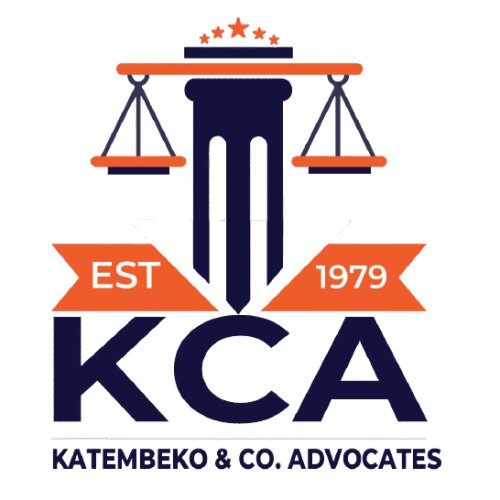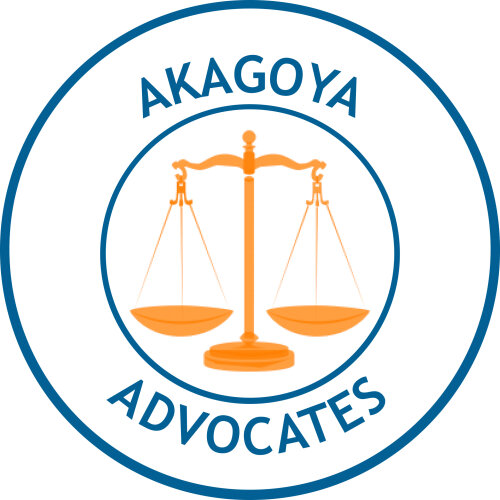Best Nonprofit & Charitable Organizations Lawyers in Uganda
Share your needs with us, get contacted by law firms.
Free. Takes 2 min.
Or refine your search by selecting a city:
List of the best lawyers in Uganda
About Nonprofit & Charitable Organizations Law in Uganda
Nonprofit and charitable organizations in Uganda play a crucial role in social development, providing essential services and acting as change agents in various sectors, including health, education, and human rights. These organizations are registered under laws that provide a framework for their governance and operations. In Uganda, the most common legal forms for such organizations include Non-Governmental Organizations (NGOs), trusts, and societies. The Non-Governmental Organizations Act, 2016, is the primary legislation governing NGOs, outlining their formation, registration, and regulation, ensuring that these entities operate ethically and transparently.
Why You May Need a Lawyer
Engaging a lawyer specializing in nonprofit and charitable organizations can be invaluable for numerous reasons. You may require legal help to navigate the complex regulatory environment, particularly during the registration process of a new organization. Legal counsel can also assist with drafting governing documents such as constitutions and bylaws, ensuring compliance with statutory obligations, and advising on tax-related matters. Additionally, lawyers can offer guidance on managing internal disputes, mergers, or partnerships and protecting the organization’s intellectual property.
Local Laws Overview
In Uganda, nonprofit and charitable organizations must comply with several laws and regulations. The NGOs Act of 2016 requires organizations to register with the National Bureau for NGOs, which oversees compliance with legal requirements and ethical standards. The Companies Act, Cap 110, may also apply, especially if an organization registers as a company limited by guarantee. Taxation laws are relevant as they affect the fiscal responsibilities and potential benefits for nonprofits. Employment regulations must also be observed to manage human resources fairly and legally.
Frequently Asked Questions
1. What are the requirements to register an NGO in Uganda?
To register an NGO, you need a name reservation, completed application forms, a constitution, work plan, budget, and proof of office premises, among other documents.
2. Are there tax exemptions available for nonprofits in Uganda?
Yes, recognized charitable organizations may be eligible for tax exemptions under the Income Tax Act, supplemented by obtaining certification from the Uganda Revenue Authority.
3. How is an NGO different from a trust or society?
An NGO is usually larger and must comply with the NGOs Act, while trusts are governed by a board of trustees and societies by mutual agreements among members.
4. What governance structures are required for nonprofits?
Nonprofits typically need a governance structure including a board of directors or management committee, responsible for strategic oversight and fiduciary duties.
5. Can foreign NGOs operate in Uganda?
Yes, foreign NGOs can operate in Uganda but must be registered locally and comply with the NGOs Act and additional requirements set by the relevant authorities.
6. What are the mandatory reporting obligations for NGOs?
NGOs must submit annual reports, audited financial statements, and other documentation to the National Bureau for NGOs to maintain their registration status.
7. Can an NGO engage in profit-making activities?
While the primary aim is not profit-making, NGOs can engage in commercial activities strictly related to their objectives, and profits should be reinvested in their mission.
8. How can an NGO be dissolved?
An NGO can be voluntarily dissolved by its members or be forced by a court order due to violations of the law or failure to comply with regulatory requirements.
9. What legal issues commonly affect nonprofits?
Common issues include governance disputes, compliance failures, employment conflicts, and challenges related to funding and contractual obligations.
10. How can we ensure compliance with ethical standards?
Establishing strong governance practices, regular training, and adherence to internal policies can help maintain ethical standards within a nonprofit.
Additional Resources
For further assistance, consider contacting the National Bureau for NGOs, the Uganda Revenue Authority for tax guidance, or organizations such as the Uganda National NGO Forum, which provides support and advocacy for the nonprofit sector. Legal professionals specializing in nonprofit law can also offer tailored advice and support.
Next Steps
If you require legal assistance in nonprofit and charitable organizations, consider consulting a legal expert with specific knowledge in this field. You may begin by outlining your needs, preparing necessary documents, and identifying potential lawyers through referrals or legal directories. Engaging with a lawyer early can prevent costly legal pitfalls and ensure your organization adheres to Uganda’s legal framework, allowing you to focus on achieving your mission effectively and legally.
Lawzana helps you find the best lawyers and law firms in Uganda through a curated and pre-screened list of qualified legal professionals. Our platform offers rankings and detailed profiles of attorneys and law firms, allowing you to compare based on practice areas, including Nonprofit & Charitable Organizations, experience, and client feedback.
Each profile includes a description of the firm's areas of practice, client reviews, team members and partners, year of establishment, spoken languages, office locations, contact information, social media presence, and any published articles or resources. Most firms on our platform speak English and are experienced in both local and international legal matters.
Get a quote from top-rated law firms in Uganda — quickly, securely, and without unnecessary hassle.
Disclaimer:
The information provided on this page is for general informational purposes only and does not constitute legal advice. While we strive to ensure the accuracy and relevance of the content, legal information may change over time, and interpretations of the law can vary. You should always consult with a qualified legal professional for advice specific to your situation.
We disclaim all liability for actions taken or not taken based on the content of this page. If you believe any information is incorrect or outdated, please contact us, and we will review and update it where appropriate.
Browse nonprofit & charitable organizations law firms by city in Uganda
Refine your search by selecting a city.
















